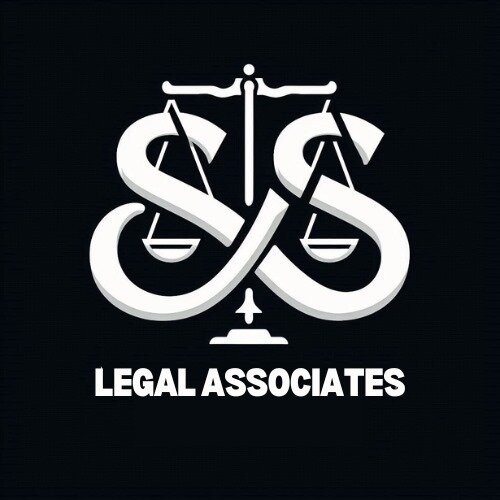Best Nonprofit & Charitable Organizations Lawyers in Kolkata
Share your needs with us, get contacted by law firms.
Free. Takes 2 min.
List of the best lawyers in Kolkata, India
About Nonprofit & Charitable Organizations Law in Kolkata, India
Nonprofit and charitable organizations in Kolkata, India, play a crucial role in addressing various social issues, providing support to underprivileged communities, and promoting cultural, environmental, and educational activities. These organizations operate under a framework of legal regulations designed to ensure transparency, accountability, and effective governance. Nonprofits may take various forms, such as trusts, societies, or Section 8 companies, each governed by specific laws and regulations.
Why You May Need a Lawyer
Operating a nonprofit or charitable organization involves navigating complex legal landscapes. Here are some common situations where legal help may be necessary:
- Establishment and Registration: Legal assistance is often required to choose the appropriate structure (trust, society, Section 8 company) and complete the registration process.
- Compliance: Ensuring compliance with local laws, including financial disclosures, tax exemptions, and filing requirements.
- Governance Issues: Drafting and amending bylaws, conflict resolution among board members, and policy development.
- Contractual Agreements: Negotiating agreements with donors, partners, and service providers.
- Taxation: Navigating tax-exemption status and compliance with Income Tax Act provisions.
- Employment Law: Ensuring compliance with labor laws concerning employees and volunteers.
- Intellectual Property: Protecting intellectual property rights, including trademarks and copyrights.
Local Laws Overview
The legal framework governing nonprofit and charitable organizations in Kolkata is primarily dictated by the following:
- Indian Trusts Act, 1882: Governs the setup and management of public charitable trusts.
- Societies Registration Act, 1860: Applies to societies, which are membership organizations working for charitable purposes.
- Companies Act, 2013: Relevant for Section 8 companies, which are formed for charitable purposes without profit motives.
- Income Tax Act, 1961: Contains provisions for tax exemptions and compliance requirements for nonprofits.
- Foreign Contribution (Regulation) Act (FCRA), 2010: Governs foreign donations to Indian nonprofits.
Frequently Asked Questions
What is the difference between a trust, society, and Section 8 company?
A trust is created by a trust deed and is managed by trustees. A society is a membership organization established with a memorandum of association. A Section 8 company is formed under the Companies Act for non-profit purposes.
How can a nonprofit obtain tax exemption?
Nonprofits can apply for tax exemption under sections such as 12A and 80G of the Income Tax Act after meeting certain criteria and following the necessary application procedure.
Are foreign donations allowed for nonprofits in Kolkata?
Yes, but they must comply with the FCRA regulations, which require registration and adherence to specific reporting requirements.
What are the legal requirements for governing board meetings?
Board meetings must adhere to the organization's bylaws, which typically outline notice periods, quorum requirements, and decision-making processes.
Can a nonprofit distribute profits to its members?
No, nonprofits are prohibited from distributing profits to members; surplus income must be re-invested in furtherance of the organization's objectives.
How can an organization amend its founding documents?
Amendments typically require approval by the governing board and, depending on the structure, may also need approval from relevant authorities.
What happens if a nonprofit fails to comply with legal requirements?
Noncompliance can lead to penalties, loss of tax-exempt status, and in severe cases, dissolution of the organization.
Do nonprofits need to hire employees legally?
Yes, nonprofits must comply with all applicable labor laws, including employment contracts, minimum wage standards, and social security contributions.
Is annual audit mandatory for nonprofits?
Yes, an annual audit is generally mandatory for transparency and accountability purposes, and it must comply with relevant laws and accounting standards.
Can nonprofits engage in commercial activities?
Nonprofits may engage in incidental commercial activities, provided profits are used for their charitable purpose, and such activities are allowed by their founding documents.
Additional Resources
For further assistance and information, consider reaching out to the following resources:
- Registrar of Societies: Provides guidance on society registration and compliance.
- Charity Commissioner: Manages Trust registration and regulates their activities.
- Institute of Company Secretaries of India (ICSI): Offers resources related to the formation and governance of Section 8 companies.
- Income Tax Department: Information on tax exemptions and compliance for charitable organizations.
- NGO Darpan: A Government of India initiative to provide a platform for interaction between NGOs and government bodies.
Next Steps
If you require legal assistance regarding your nonprofit or charitable organization in Kolkata, consider the following steps:
- Identify Your Needs: Determine the specific legal issues or compliance requirements you are facing.
- Consult a Legal Expert: Reach out to a lawyer specializing in nonprofit law for expert advice tailored to your needs.
- Prepare Documentation: Gather all necessary documents related to your organization for a comprehensive legal review.
- Engage Professional Services: Consider hiring professional accountants or company secretaries for ongoing compliance and governance needs.
- Stay Informed: Keep abreast of any changes in relevant laws and regulations to ensure continued compliance.
Lawzana helps you find the best lawyers and law firms in Kolkata through a curated and pre-screened list of qualified legal professionals. Our platform offers rankings and detailed profiles of attorneys and law firms, allowing you to compare based on practice areas, including Nonprofit & Charitable Organizations, experience, and client feedback.
Each profile includes a description of the firm's areas of practice, client reviews, team members and partners, year of establishment, spoken languages, office locations, contact information, social media presence, and any published articles or resources. Most firms on our platform speak English and are experienced in both local and international legal matters.
Get a quote from top-rated law firms in Kolkata, India — quickly, securely, and without unnecessary hassle.
Disclaimer:
The information provided on this page is for general informational purposes only and does not constitute legal advice. While we strive to ensure the accuracy and relevance of the content, legal information may change over time, and interpretations of the law can vary. You should always consult with a qualified legal professional for advice specific to your situation.
We disclaim all liability for actions taken or not taken based on the content of this page. If you believe any information is incorrect or outdated, please contact us, and we will review and update it where appropriate.
















